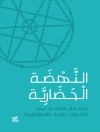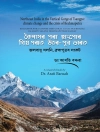‘Engaging, rich and nuanced, this book exposes the deep dilemmas facing this Arctic archipelago. A must for anyone with an interest in the challenges of a melting world. Ethnography at its best’ Marianne E. Lien, Professor, University of Oslo
‘Rich and deeply textured … Zdenka Sokolíčková demonstrates how the logic of extraction intersects awkwardly with community, environment, geopolitics and sustainability’ Klaus Dodds, Professor, Royal Holloway University of London
‘Lucidly captures the dilemmas of maintaining community in the world’s northernmost settlement, where climate change is particularly evident. Highly recommended!’ Cecilie Vindal Ødegaard, Professor, University of Bergen
Longyearbyen in the Arctic is the world’s northernmost settlement. Here, climate change is happening fast. It is clearly sensed by the locals; with higher temperatures, more rain and permafrost thaw. At the same time, the town is shifting from state-controlled coal production to tourism, research and development. It is rapidly globalising, with numerous languages spoken, and with cruise ships sounding their horns in the harbour while planes land and take off.
A small town of 2, 400 inhabitants on the Norwegian archipelago of Svalbard, Longyearbyen provides a unique view into the unmistakable relationship between global capitalism and climate change. The Paradox of Svalbard looks at local and global trends to access a deep understanding of the effects of tourism, immigration and labour on the trajectory of the climate crisis, and what can be done to reverse it.
Zdenka Sokolíčková is a researcher at the University of Hradec Králové, Czechia, and the University of Groningen in the Netherlands. Her research in Longyearbyen was hosted by the Department of Social Anthropology at the University of Oslo, Norway.
Daftar Isi
Abbreviations
Acknowledgements
Foreword by Thomas Hylland Eriksen
Introducing the Fieldwalk: Field, Companions and Path
Part I: Fluid Environments
1. Fairy Tales of Change
2. Once Upon a Time – So What? Why and How a Changing Environment Matters
3. The Viscosity of the Climate Change Discourse
Part II: Extractive Economies
4. The Art of Taking Out: From Extracting Coal to Extracting Knowledge and Memories
5. Big Powers and Little People: Scaling Economic Change
6. Sustainability with a Footnote: Missing out Justice
Part III: Disempowered Communities
7. The Trouble with Local Community
8. In the Neighbourhood
9. ‘Make Longyearbyen Norwegian again’: Denying Superdiversity
Conclusion: The Paradox of Svalbard
Afterword by Hilde Henningsen
References
Tentang Penulis
Thomas Hylland Eriksen is Professor of Social Anthropology at the University of Oslo and former President of the European Association of Social Anthropologists (EASA). He is the author of numerous classics of anthropology, including Small Places, Large Issues, Ethnicity and Nationalism and What is Anthropology?












